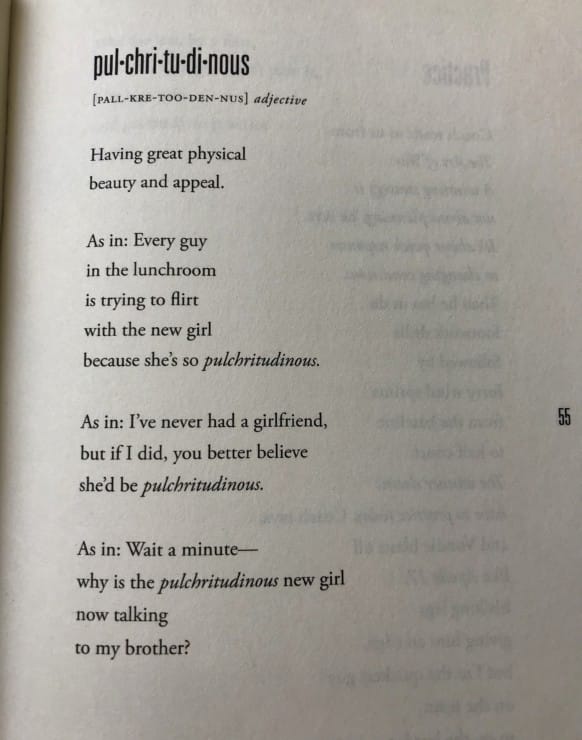No month stresses me out like September. It is a month of hefty transitions. No more bathing suits and beach towels hanging out to dry on the deck. No more after-lunch bike rides around town with no particular place in mind. No more fireflies.
September brings with it words like “procedures,” “schedules,” and “syllabus.” September means packing lunches, learning bus routes, and sitting in carpool lines.
Don’t get me wrong, I’ll take the sharpened number 2 pencils. I’ll take that giant stack of graphing paper, and I’ll inhale deeply the scent of a book yet to be read. I’d simply like to skip over the part where I have to say, “So long,” to summer because it takes at least thirty days to do it. Or maybe I simply feel the goodbye for that long.
But October is a different story. October is bright and crisp. The foliage (at least up north) changes. Fall arrives. In October we are used to the schedule, we’ve crossed a few items off the syllabus, and procedures might not be kindred spirits, but they’re reliable pals we’ve come to admire.
It is in October when the sting of a summer gone lessens and with it, a willingness — dare I write pleasant anticipation — to see what can be done with this cold, bright, weather. What can be done with these learned concepts and skills, these beginning friendships?
The only trouble there is with October is writing about it. It’s like trying to write about a sunrise or a sunset or a just-poured cup of coffee. October, as fresh and beautiful as it is, lends itself to cliche. The trick, then, is to do the work of figuring out another way to see and describe all the loveliness October brings. I suggest “As In” poems.
Try It
“As In” poets take the definition of a word and turn that definition into prose. Then the poet invites the reader into her experience with that word, beginning with “as in.” I learned about “As In” poetry after reading Kwame Alexander’s book, The Crossover. Here’s an example:
Make a list of everything you think of when you think of October, fall, or foliage. Take one of those words and look up the definition. Then create an “As In” poem.
Featured Poem
Thanks to everyone who participated in last week’s poetry prompt. Here’s a poem we enjoyed from Sandra Heska King:
The Answer
when x is unknown
ours is not to reason y
just get x alone
—Sandra Heska King
Photo By Joel Olives Creative Commons, via Flickr. Post by Post by Callie Feyen, author of The Teacher Diaries: Romeo and Juliet.
This is a book about being a teacher, and about being a mother, and, in its way, about being a writer. But it is most fully a depiction of living with a work of literature, about the conversations literature can spark and the memories literature can hold and reconfigure. The acknowledgments suggest that writing this book helped Callie Feyen remember why she loved teaching. Reading it made me remember why I love to read. —Lauren Winner, bestselling author and Associate Professor, Duke Divinity School
- Poetry Prompt: Courage to Follow - July 24, 2023
- Poetry Prompt: Being a Pilgrim and a Martha Stewart Homemaker - July 10, 2023
- Poetry Prompt: Monarch Butterfly’s Wildflower - June 19, 2023



Richard Maxson says
Love that poem, Sandra.
Sandra Heska King says
Thanks, Richard. 🙂
And thanks for highlighting it, Callie.
Richard Maxson says
Autumnal
As in: each year, under the Spring Oak,
the supple failures of late September
are strewn over the lush lawn,
and this morning I looked up
to see a squirrel enter its nest,
then over the edge stare down at me,
its energy pouring from indifferent eyes.
As in: when my hands are full with a gathering
of the tangled, shriveled shoots
she rejected and let fall one by one.
As in: earlier, when I walked and stopped
into a lone patch of forgotten trees
between the BP station and the DMV,
and there for a moment in the breeze
I smelled the first snows of Canada.
As in: the intended nest in my hands
in this is the land of eternal green,
though my hands say it is October.
As in: these hands, their veins prominent, strong
from years of gathering, freckle with their own season.
As in: the mountains in memory, where once I lived,
are on fire with surrender—amber, red and gold.
They reminded me each year of the forsaking required
to carry on, or travel on.
As in: here, where the wind changes
to a worrisome thing. I see it on the weather report,
puffs of clouds whirling off the coast of Africa,
smoke from a steam engine inevitably revolving us in space.
As in: the rattle of cicadas this morning, the sound of this engine,
moving us along, round blue planet—destination right on time.
Sandra Heska King says
As in: This poem is like a big pile of raked leaves in which I just want to sit for awhile.
As in: I really like it.
Sandra Heska King says
October Transitions
Transition – to change from one situation, form, or state to another
As in: An explosion of color that precedes a long winter’s rest – October
As in: Moving my mother into the hospice home – October
As in: Daughters born to both my son and daughter – October
As in: An unexpected move from seasons to perpetual summer – October
As in: Weathering one’s first hurricane as in Irma – October
As in: Planning a 2019 wedding for – October
As in: Life and death and sorrow and joy – October
“All changes, even the most longed for, have their melancholy; for what we leave behind us is a part of ourselves; we must die to one life before we can enter another.” ~Anatole France
Callie Feyen says
I agree with Sandra!
You had me at “supple failures of September.” Also, this will sound weird, but the breeze that brought in the smell of Canada reminded me of the days when I could smell Gary, Indiana from Chicago. I knew spring was on its way when I could smell those factories. Finally, I’m always looking for a better way to describe the joy I find in the changing of the leaves, but I also know it’s their last gasp, and that makes me sad that they’re the most beautiful in death. I think you captured that in this phrase: “on fire with surrender.”
Callie Feyen says
Sandra, what a great “pile of leaves” you’ve written that I’d like to sit in as well. I like that you chose to make each line the same length as the definition. I think it adds to the list-like feel to the poem. Each line is striking, and I think you give a more textured meaning to October.
Monica Sharman says
Everybody here knows what you mean
when you say, “The colors,” especially now,
the second day in October. They know
you’re talking about leaves turning away
from green — as in the yellows of elm and cottonwood,
the red-orange maple, the purple-red ash and aspen gold.
But only because we live here. Someplace else, where a year
is not so divided by seasons, colors
means something else — as in a knitter’s choice of skeins,
a budding artist’s paints for her work
in progress, a chef’s arrangement of aubergines
nestled against purple baby potatoes
and yams as bright as, yes, the turning leaves.
Colors — as in every shade surrounding
the second day of October, the day this year
when my mother would have turned eighty
and I remember that she loved palette words:
ecru,
chartreuse,
fuchsia,
and all the brightest reds
of the turning leaves.
Callie Feyen says
Oh, I think this poem feels like a leaf falling from a tree. I inhaled sharply at, “turning away from green,” and I think I held my breath throughout the rest, until that deep exhale at the end: “and I remember that she loved palette words:”
This poem makes me think about what it means to turn away and turn toward.
Thank you.
Katie says
Hurricane: a severe tropical cyclone
originating in the Atlantic
traveling north, northwest
usually producing heavy rain
As in: Florence,
400 miles in diameter
(approximately the size of four Ohio’s)
As in: Hurricane Flo’
wind speed of 110 mph upon landfall
34 inches of rain in 3 days
dropped on South Eastern NC
As in: 1,200 roads blocked
states of emergency declared in 5 states
1.7 million people in evacuation zones
As in: submerged houses
cut off towns
flooded neighborhoods
As in: trees on roofs
trees through roofs
broken windows
As in: closed schools
and universities
which still haven’t reopened
As in: failed businesses
ruined crops and dead live stock
jobs lost
As in: power taking weeks
to be restored
spoiled groceries
unsafe drinking water
As in: families displaced
aid needed
lives interrupted
(I hope you will consider giving to an organization such as the American Red Cross, or Samaritan’s Purse who have and continue to do so much to help those in need in the Carolina’s)
Prasanta says
Senescent (adjective)
1. growing old; aging.
2. Cell Biology. (of a cell) no longer capable of dividing but still alive and metabolically active.
As in: trees laughing leaves, dropping down on me, floating in the wind.
I catch a handful of laughter, toss it back in the air.
As in: the hidden beauty in growing old, in death, revealed and witnessed through vibrant colors of burnt orange, flaming scarlet, deep gold.
I see the lines of mirth and hues of grace in an aging autumn.
As in: the beauty of letting go, surrender, the tree succumbing to the cold of winter without its luscious wrap of leaves.
The tree, another year older, yields to the process of time and change. I, too, am another year older, passing through another autumn, counting the number of autumns remaining.
As in: watching youthful green disappear as quickly as it came.
I soon will see the tree, standing in the middle of winter like a stark, bare skeleton with spindly limbs. Only leaves have died; it remains alive and breathing, waiting for its time to bloom again.